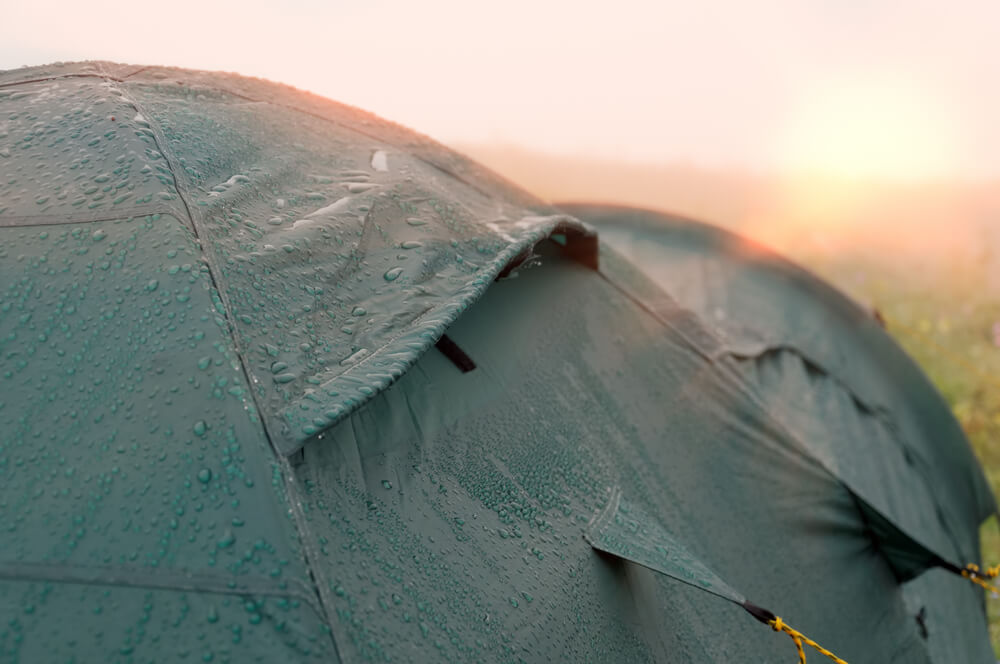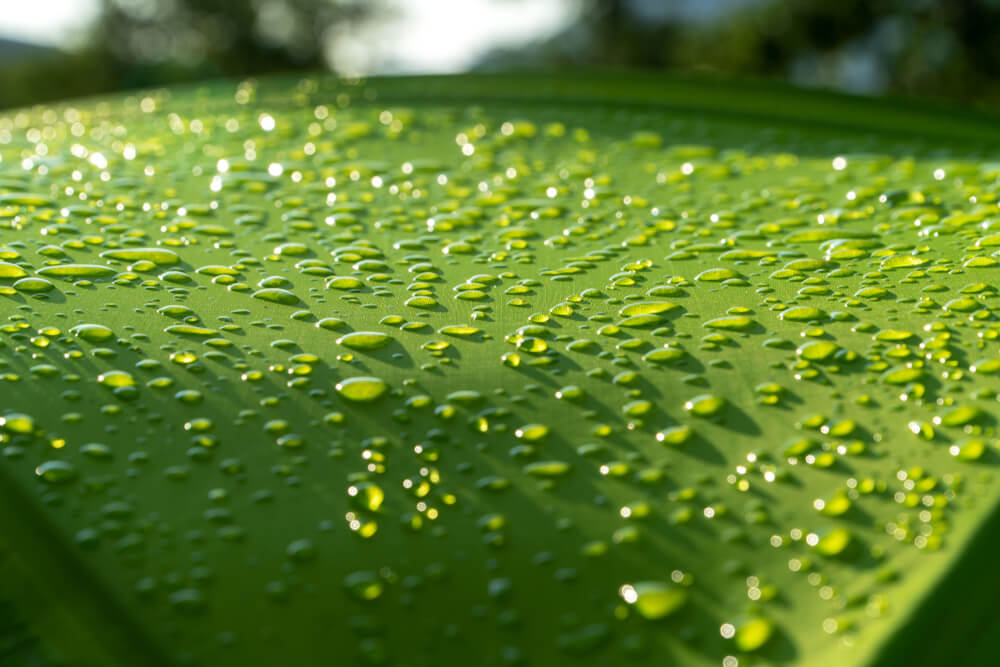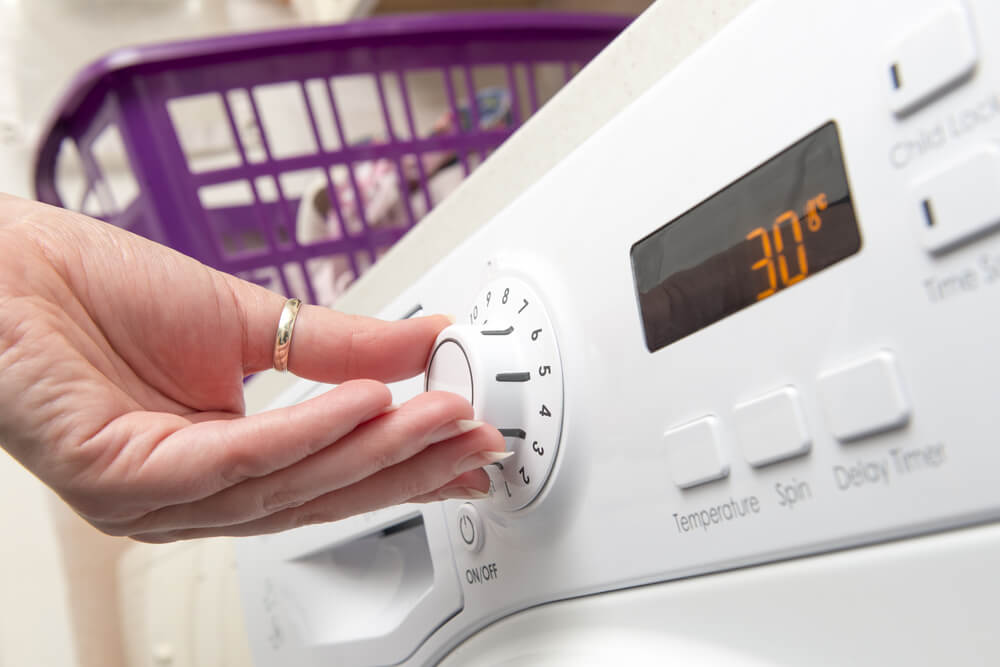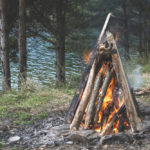I consider myself as a real outdoor enthusiast and as such, I never let anything stand between me and my next camping adventure. Back in the day, I used to be stubborn enough not to check the weather forecast before setting off on my trips. It is safe to say that came back to bite me and even forced me to part ways with a couple of great tents.
You see, stubborn old me did not realize the damage that some water can do to my tent. After facing a rainy day on a camping trip, all I did was pack my things and my tent and just leave the campsite. Little did I know drying my tent completely before packing it was crucial to its longevity!
Now that I know how important is to make sure that your tent is all clean and dry before packing and storing it, I want to tell you all about it and help you avoid making the same mistakes as me. Trust me, it is much easier to just learn how to dry the tent after a rain instead of buying new tents over and over.
So, if you want to learn more about the best ways to dry tents and the no-no’s of the process, you have come to the right place. Stick with me and I will tell you everything you need to know on the topic. By the time you set off on your next camping adventure, you will be a real pro at all things tent-related!
More...

Table of Contents
How Do You Dry a Tent Fast?
It is safe to assume that a lot of you will think of drying your tent with a hairdryer or possibly putting it in the dryer just as you would do with your clothes. This is where you will make the biggest mistake as these types of dryers can only damage your tent. I will talk more about this a bit later.
If you want to dry a wet tent fast, I have two great methods that you can apply. The first one is suitable for those who want to dry their tent in the great outdoors, while the other is perfect for at-home drying. So, let’s see what they are all about.
Method 1 - Drying your tent outdoors
Imagine this – you are on a great camping trip and you set up camp only to see dark clouds gathering. It starts to rain and the only shelter you have is the tent. You have to sit in it and wait for the storm to pass, but what happens once it does pass?
Well, first things first, you will need to dry the tent. Gather everything you have in the tent and put it in a place where it cannot get wet. The best place for that would be a rock or ledge because if you let them sit on the ground, they will get all wet and dirty.
Then, get your tent and put it on a ledge that is not covered with dew. If you can find one that is also exposed to sun and wind that will be great. Let it dry on the ledge, turning it over once you see that the first side is all dried up.
Since the drying process is not that long, check to see if your tent is dry after some time. Make sure that it is completely dry, even on the inside, before packing it up. Leaving even the smallest wet spot on it can lead to mildew growth and that is something you could avoid.
In case there is not a ledge that you can use or you set camp in the middle of the forest, you can pack your tent for only until you get to a sunnier place. Then, put it up again, maybe even try laying it on your car so that it can dry before you pack it up again and continue on your way.
Method 2 – Drying your tent at home
Let’s say that you have brought a wet tent home. Maybe it is dirty and you had to clean it up. What now, how do you dry it?
Well, the best thing that you can do is put it up in your garden or backyard - that is if you have a garden or backyard. Make sure that it is exposed to sun and wind that will dry it quickly. Leave it for as long as it takes to dry and only then start packing it up.
But what happens if you do not have a backyard?
No need to worry, you can dry your tent in your home or even in the garage. If you have enough space in a room, you can stretch the tent there but if you do not, you can place it in the garage or another spot in your home.
The first thing you can do is towel dry the tent, leaving the rest to dry on its own. If that part of your home is exposed to sunlight that will be great as the tent will be able to dry faster. If it is not, then you will need to add a box fan in front of it and let it dry like that.
It would be best if you can create a continuous airflow – this means that aside from the box fan, you could try opening a window or turning on your ceiling fan to make the tent dry faster. Once you see that the tent is completely dry, you can carefully pack it up and store it away.
Alternative options
If these two options are not your cup of tea, I get that. There are a few other alternatives that you can use but they might be a bit more difficult.
You can try attaching your tent to a clothesline and drying it like that on your balcony. However, if you have one of those big tents for 4+ people, this will not quite cut it.
Another thing that you can do is hang it on a shower door or over a shower curtain. Considering that bathrooms are more humid rooms, the drying will take a lot longer, so this is not that good of a solution either.

How Long Can You Leave a Tent Wet?
As I mentioned before, you might not get the chance to dry your wet tent while you are at your camping site. You could be forced to pack it up wet and drive home before you can dry it.
In case this happens to you, you should remember that a tent can stay wet anywhere from 24 to 48 hours but never longer. If you let your tent stay wet for longer, you will open the possibility of mold or mildew developing on it.
Mold and mildew do not thrive on tent fabrics but they do in places where they have water and dirt. If you let them stay on a wet surface, they will get into the fabric and cause it to have a faulty smell. Once that happens, not even the best washing detergents or perfumes will help remove the smell.
What Do You Do If Your Tent Gets Wet?
If your tent gets wet by rain, morning dew, or even if you spill something on it, you have to dry it as soon as possible. Leaving it to dry in the sun is the best option, but there are a couple of other great solutions that you should know as well.
While the best option is to avoid going on trips when there is the possibility of rain, I get that you might not want to do that all the time. If you know that there is a chance of rain, I suggest you pack a general water repellent or even a waterproof tent spray.
Most tents are waterproof to some degree, but if yours is not, you can always get a waterproof tent spray. Nowadays, there are a ton of companies that make them and they are quite affordable. These sprays are also quite versatile – you can even get separate sprays for all the different parts of the tent.
The waterproof tent spray is super effective, but so is the general water repellent. If you spray some of this latter spray, the water will immediately bounce off your tent when it gets to it. That should be enough to keep the tent dry but just to be sure, dry it in the sun afterward as well.

Can You Put a Wet Tent In a Dryer?
Putting a wet tent in a dryer is one of the worst things that you can do. While dryers are great for drying clothes, your clothes are not made from the same fabric as the tents. Tent fabrics cannot stand that much heat nor are they made for all that tumbling action.
First of all, the heat from the dryer can ruin your tent’s fabric and even melt the seams. Second, the tumbling action will stress and stretch the fabric too much. Your tent might be dry afterward, but the fabric will be so damaged that it will probably become less waterproof than before.
And if you are wondering – no, hairdryers are also not a good drying option. They are so similar to clothes dryers and they have a similar effect on the tent fabric. However, you can use a hairdryer to dry a wet tent if you put it in a cool setting.
What Happens If You Store a Wet Tent?
Leaving your tent wet is not a good idea, let alone storing it while it is still wet. It is the worst thing that you can do to it and it can cause some serious damage to it.
The worst thing that can happen to your tent is that it will grow some kind of fungus. Not only will that damage the fabric and cause it to have a bad smell but it will also harm the health of the people sleeping in that tent.
To avoid this, you should always clean and dry your wet tent after using it. You can wipe it with a cloth or towel if there is dirt on it, then leave it to dry completely before storing it away.
Let’s say that you did not notice a wet spot on your tent and you packed it without drying it. The next time you check it, you see that there is some mold growing on it. What then?
First of all, you should know that mold can be very difficult to clean because it spreads very easily and it can get into the fabric where you cannot easily reach it. You should not wait for it to spread, but if it has, there are a few things that you can use to try to remove it.
- Bleach
This will kill the mold but it will also damage the fabric beyond repair. If you have to use it, make sure you dilute it before doing so.
- Lemon juice
You can try using lemon juice only to clean without damaging the fabric, but it might not be strong enough to kill the fungus and it might come back.
- Vinegar
Since it is natural, vinegar will not damage the fabric and it will kill the mold. However, your tent might adopt a sour smell after the cleaning.
If all this taught you something, it should be that checking if your tent is dry is much easier than having to deal with the consequences of not doing so.
Wrap-Up
Learning how to properly take care of a tent would have been so much easier if there was one quick and simple drying solution. Unfortunately, there is no exact way to dry your tent, and sometimes, you just have to wing it.
With that being said, I recommend that you avoid camping in the rain or finding some way to prevent your tent from getting wet. If that is not an option, try to remember the methods that I mentioned previously. They will help you dry your tent effectively the next time you go camping.
If you know of other effective methods to dry your tent either outdoor or indoor, let me know in the comments. I would love to read all about them!
- Are Merrell Shoes Good? – An Unbiased Review of Merrell Footwear - December 9, 2023
- Where Are Merrell Shoes Made? - December 9, 2023
- Camping in 40-degree Weather: Tips and Tricks - September 25, 2023



![How to Stop Condensation in Tent? [3 Effective Methods] How to Stop Condensation in Tent? [3 Effective Methods]](https://grandcircletrails.com/wp-content/uploads/2022/06/How-to-Stop-Condensation-in-Tent-150x150.jpg)
![How to Get Campfire Smell Out of Clothes? [Proven Ways] How to Get Campfire Smell Out of Clothes? [Proven Ways]](https://grandcircletrails.com/wp-content/uploads/2021/11/How-to-Get-Campfire-Smell-Out-of-Clothes-1-150x150.jpg)

![Is Coleman a Good Tent Brand? [Explained] Is Coleman a Good Tent Brand? [Explained]](https://grandcircletrails.com/wp-content/uploads/2022/02/Is-Coleman-a-Good-Tent-Brand-1-150x150.jpg)